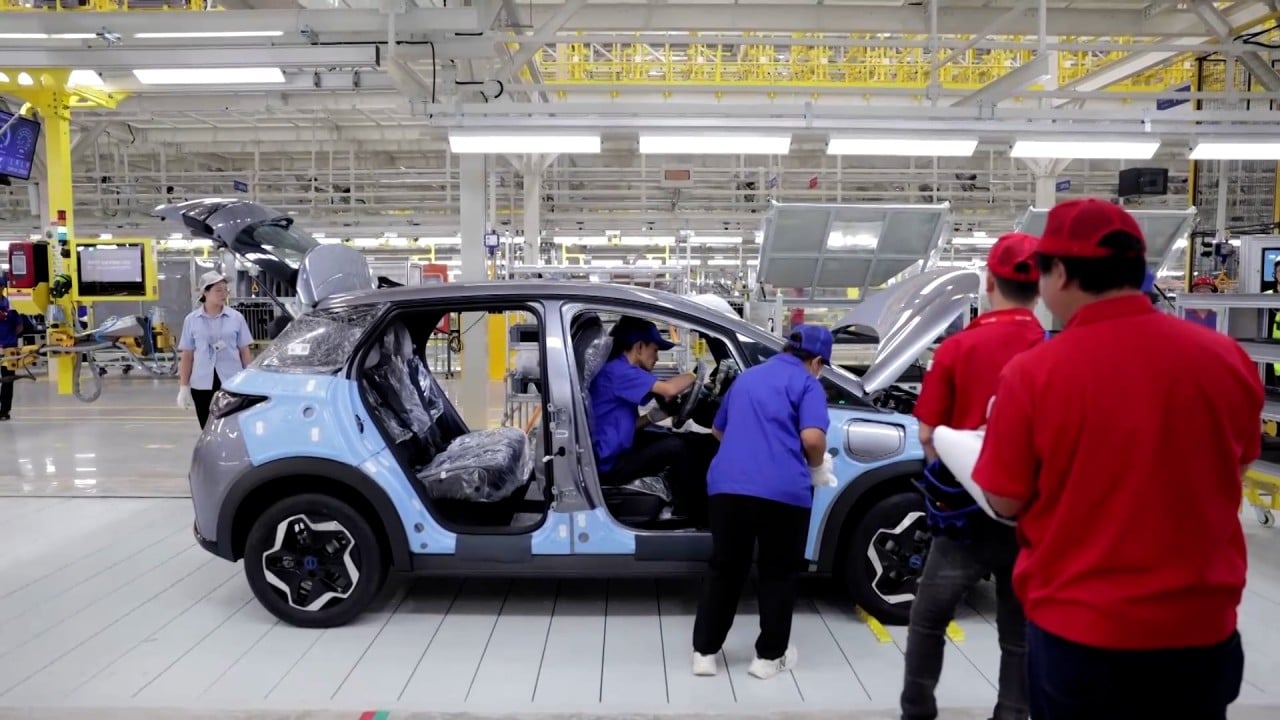China’s preference for domestic electric cars puts foreign automakers at risk, says consultancy AlixPartners

“The rapid adoption of electric vehicles has put international brands at risk,” Stephen Dyer, the company’s Greater China co-head and head of its Asia automotive practice, said in a press conference on Wednesday. “Electric vehicle penetration will rise to 75 percent, turning the tide in favor of Chinese companies.”
He did not name any of the international brands that could be forced to withdraw from the world’s largest automobile and electric vehicle market.
Currently, four out of ten new vehicles sold in China are electric.
According to the China Association of Automobile Manufacturers, international carmakers had an 80 percent market share twenty years ago as they benefited from the increasing prosperity of domestic consumers.
Their combined share fell to 48 percent last year as domestically manufactured electric vehicles increasingly replaced gasoline vehicles on mainland roads.
Chinese automakers have a huge cost advantage over foreign rivals in building electric vehicles because of their complete supply chains and strong manufacturing strength, Dyer said.
Producing an electric vehicle made in China is 35 percent cheaper than producing a comparable foreign model, he added.
China’s electric vehicle sector is expected to see sales grow 20 percent this year, compared to 37 percent in 2023, according to a Fitch Ratings forecast in November.
But the mainland will retain its status as the key growth engine for the global electric vehicle industry, Dyer said.
“Time is running against international brands,” says Chen Jinzhu, CEO of consulting firm Shanghai Mingliang Auto Service. “Even if they mobilize all their resources to develop and build electric cars for Chinese customers, it will take them at least two years to close the gap in production efficiency and vehicle performance.”
The high punitive tariffs imposed by the United States and the European Union on electric cars made in China would have little impact on the global expansion strategy of Chinese manufacturers because their cars could still be attractive to international customers even after these punitive tariffs, says Dyer.
The company, which established its first joint venture in mainland China in 1984, sold 3.2 million cars – the vast majority of them gasoline-powered – to Chinese drivers last year, up 1.6 percent from 2022.
Shenzhen-based BYD, which will stop producing gasoline-powered cars in 2022, almost reached that figure, selling nearly 3 million battery-powered and hybrid electric vehicles to Chinese buyers last year.



